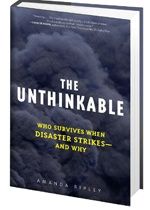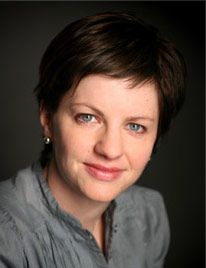The Survivors Of 9/11
Amanda Ripley has come up with three levels of response to fear.
The 3 levels
1. Denial- This can't be happening. This isn't happening to us. Denial is the most harmful fear response of all. Because of denial, many people freeze up in disasters.
2. Deliberation- The realization that something is wrong, but we don't know how to fix it or how to react to the disaster. Training for disasters enable us to be prepared for these horrific events. Without training, we are very unlikely to make it through alive.
3. The Decisive Moment- The realization that something is wrong, and that a specific action needs to be taken. According to John Leach in his book, "Survival Psychology", he reports that when in a group, 75- 80% of the crowd will do nothing. Another 10-15% will do the wrong thing, and 10% will do the right thing because they had earlier training (http://survivalcommonsense.com/2010/05/05/the-unthinkablefeed/).
The 3 levels
1. Denial- This can't be happening. This isn't happening to us. Denial is the most harmful fear response of all. Because of denial, many people freeze up in disasters.
2. Deliberation- The realization that something is wrong, but we don't know how to fix it or how to react to the disaster. Training for disasters enable us to be prepared for these horrific events. Without training, we are very unlikely to make it through alive.
3. The Decisive Moment- The realization that something is wrong, and that a specific action needs to be taken. According to John Leach in his book, "Survival Psychology", he reports that when in a group, 75- 80% of the crowd will do nothing. Another 10-15% will do the wrong thing, and 10% will do the right thing because they had earlier training (http://survivalcommonsense.com/2010/05/05/the-unthinkablefeed/).
Deadly Dust
September 11th, 2001 really did change Manuel Checo's life forever. He worked as a janitor in the World Trade Center, and no longer can talk, and has to write on a paper pad if he wants to communicate with others. He is not able to talk because the dust, which he inhaled from the explosions of the airplanes contained fiber glass, mercury, arsenic, and other deadly toxins. His life will never be the same, and he will never be the same. (http://articles.latimes.com/2006/oct/14/nation/na-cleaners14)


